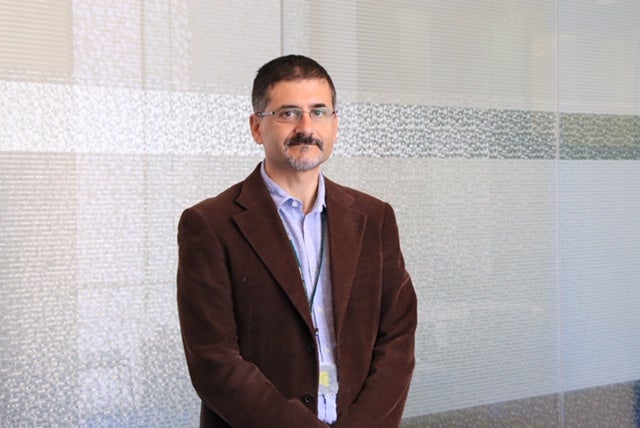
HBKU’s College of Science and Engineering has been awarded significant funding to reimagine the use of blockchain technologies in security systems.
In recent years, the introduction of blockchain has caused a buzz in all kinds of industries. But faculty members at HBKU’s College of Science and Engineering (CSE) are now hoping to cross boundaries and reshape its modern-day uses through the introduction of probabilistic analyses.
CSE’s work will be made possible through a substantial Qatar National Research Fund (QNRF) grant, the selection criteria for which is highly competitive. Only the most promising of all research proposals country-wide end up on the shortlist for the prestigious award every year.
Blockchain Basics
In the most basic sense, blockchain technologies were initially introduced to change the way we think about money. Spawning all kinds of sectors and industries, technology is an area of heavy investment for many nations around the world.
“Blockchain is a relatively simple concept,” said Dr. Roberto Di Pietro, professor of cybersecurity at the computing and information technology division at CSE. “Think about a ledger that is maintained by a variety of actors, where each actor has the proof of the integrity and reliability of the cited ledger.”
As its name suggests, blockchain technology utilizes a series of interconnected machines that collaborate collectively to determine the validity of a financial transaction. In doing so, they follow a binary system with a fixed ‘valid’ or ‘invalid’ determinant. Once the transaction is validated, the source is deemed a ‘trusted’ one by the system.
“Many organizations and economies are structured in a way that can be made more efficient through the adoption of blockchain. As is the case with any novel technology, blockchain also has the potential to deliver solutions that we are simply not able to envision yet. As such, the impact and value of this technology are what we may call ‘disruptive’, or, in other words, revolutionary,” said Dr. Di Pietro.
Introducing Probability
CSE’s research -- which enjoys the participation of Qatar’s Ministry of Defense, STA QSTP, and the University of Washington in St. Louis -- aims to challenge the current limitations of this system by introducing the notion of probability, where a ‘what-if’ analysis is conducted to explore possibilities otherwise restricted by rigid validity criteria.
“We intend to introduce the foundation for this concept, as well as its applications and demonstrators, namely in the cybersecurity and the FinTech domains, with the clear objective of advancing research and impact at a global level,” said Dr. Di Pietro.
The introduction of a probability analysis means that blockchain technologies may now be able to work with the element of uncertainty -- an area that remains untapped to this day.
“This extension has vast applications in cybersecurity, where intraorganizational system intrusions may be more easily detected and, ultimately, barred,” he said.
“Further benefits could be realized in the long term; we expect our research to introduce a novel set of tools and theoretical foundations that could help in rethinking -- or expanding -- the entire concept of blockchain as we know it and its related applications,” he added.
Investing in the Future
South Korea, Hong Kong, Singapore, the United States, and the People’s Republic of China are but a few countries that top the list when it comes to blockchain investment. Realizing the need to remain on par with worldwide trends, Qatar is becoming increasingly cognizant of the importance of relevant studies.
Over the past 12 years, QNRF has pledged nearly one billion dollars for research and development since its inception back in 2006, with research being high on Qatar’s agenda to achieve international recognition.
“Qatar is well-positioned to seize the benefit of ongoing research in this field. Studies in this area have the potential to generate a stream of innovative ideas from Doha and reverberate to technology and research hubs worldwide,” said Dr. Di Pietro.





